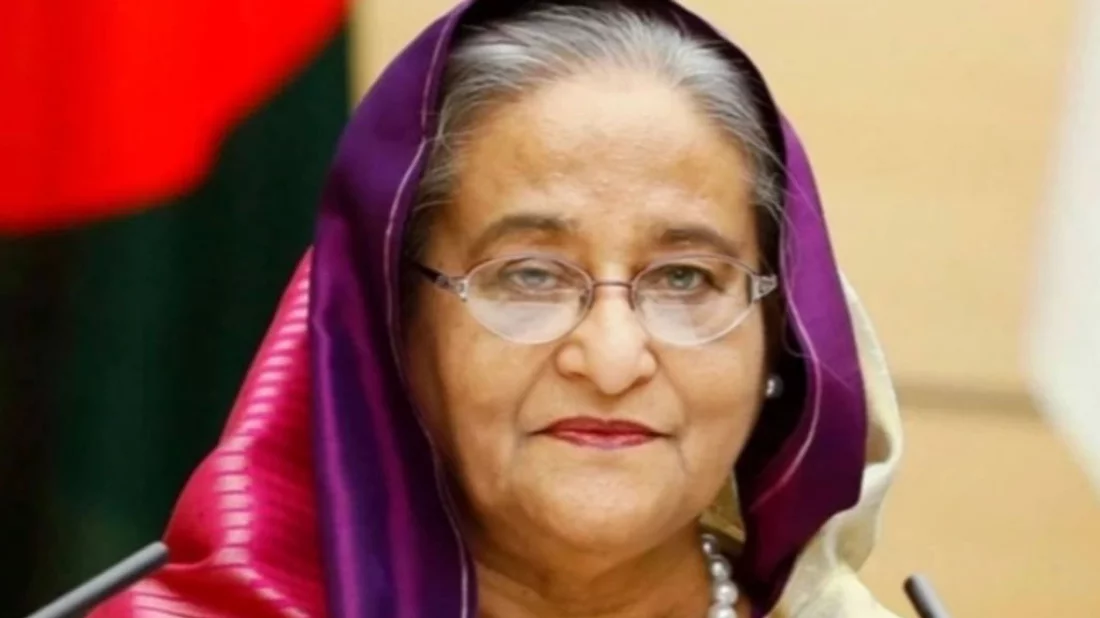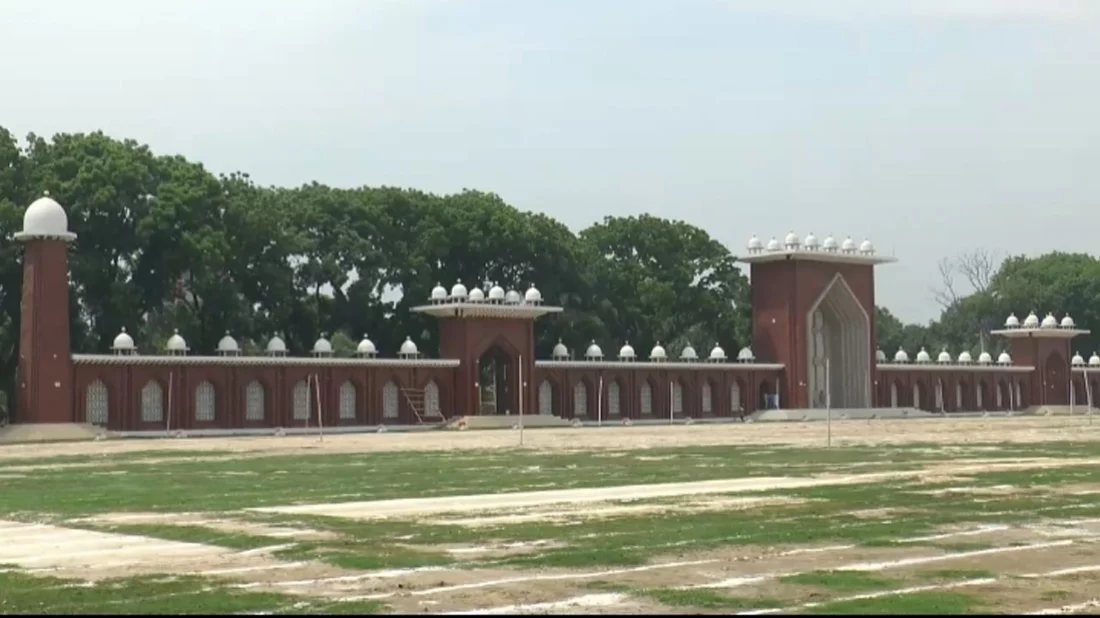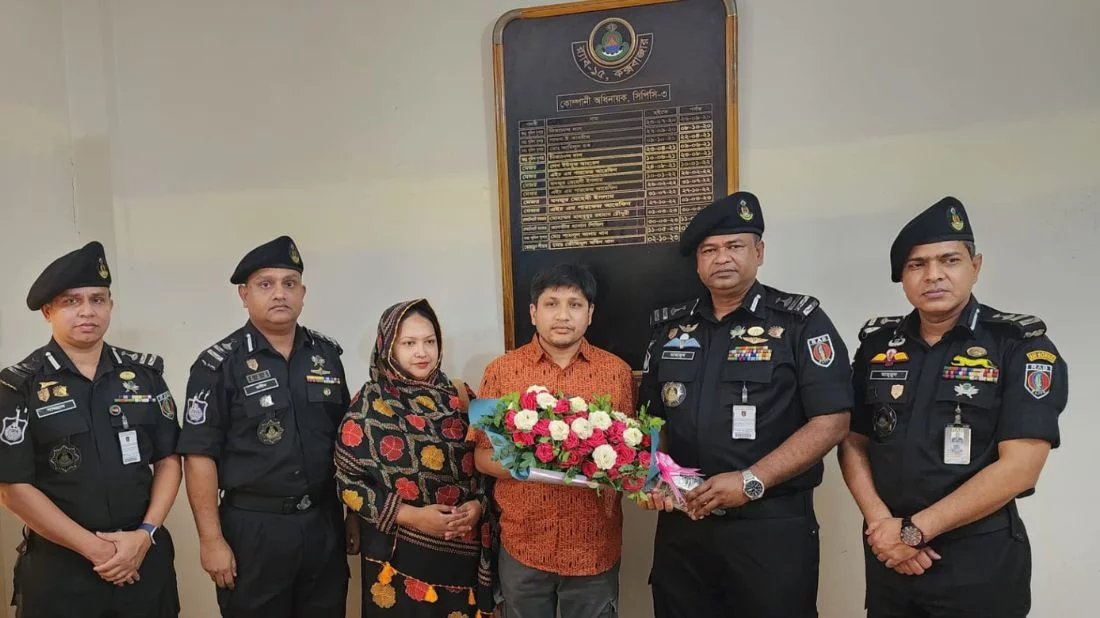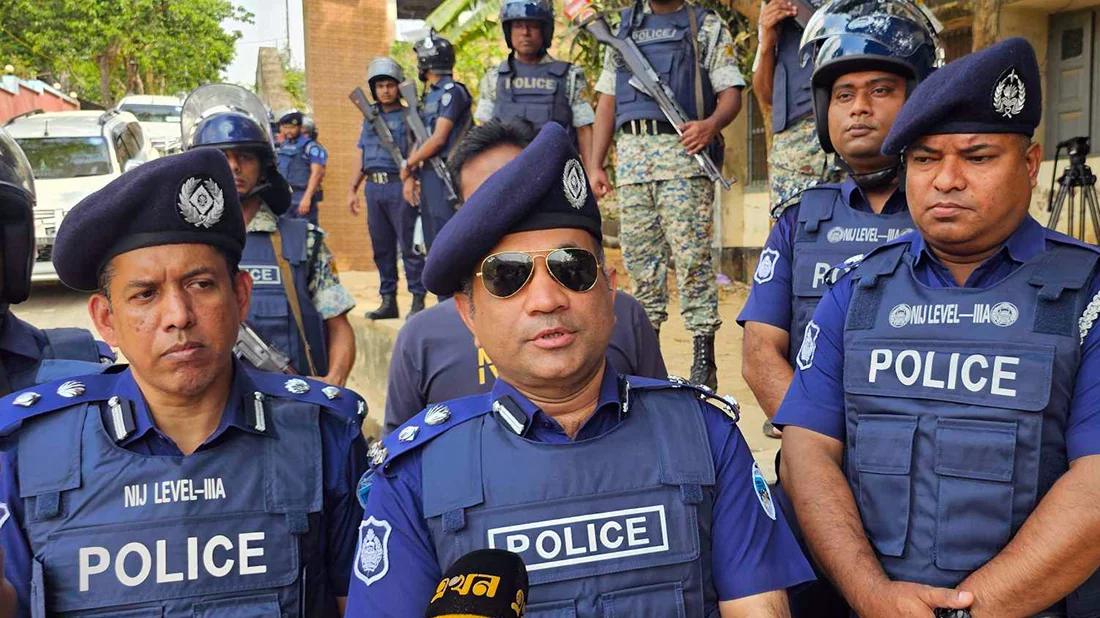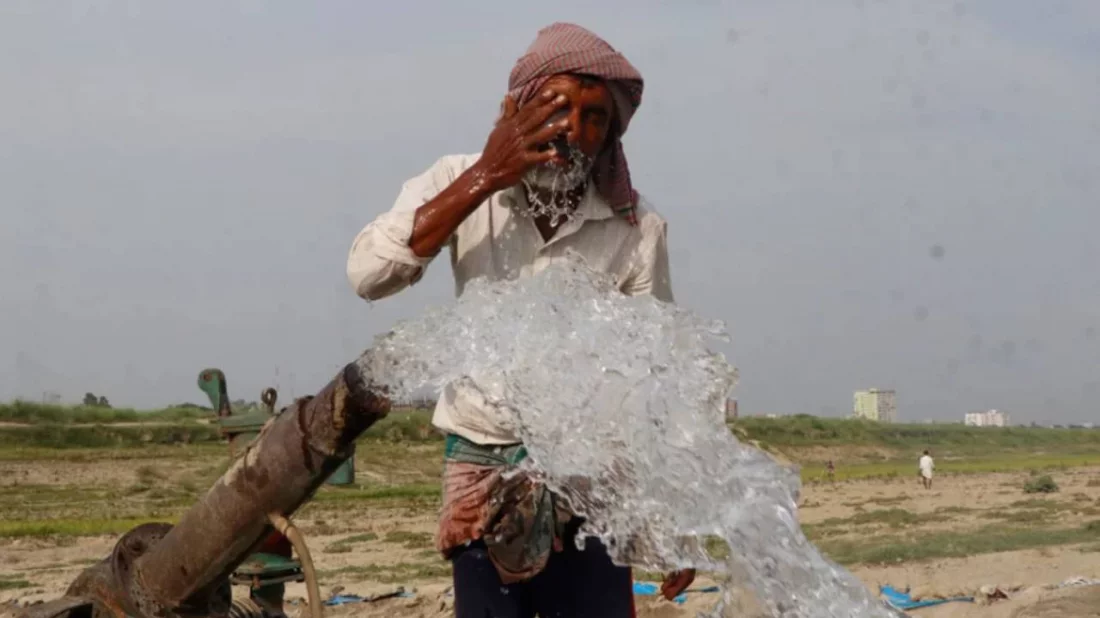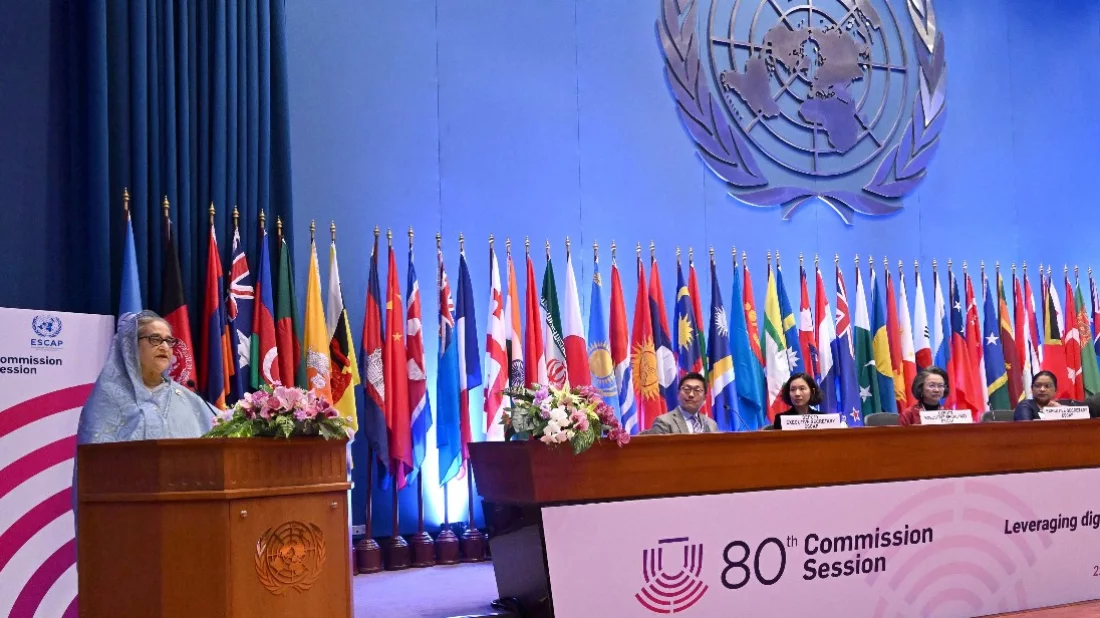
Prime Minister Sheikh Hasina on Thursday called for speaking out against all forms of aggression and atrocities and saying “no” to wars.
“We must speak out against all forms of aggression and atrocities, and say ‘no’ to wars," she said adding that Bangladesh supports the UN secretary general’s New Agenda for Peace.
The prime minister was addressing the 80th Session of the United Nations Economic and Social Commission for Asia and the Pacific (UNESCAP) at the ESCAP Hall (second floor), United Nations Conference Centre (UNCC) in Bangkok, Thailand.
She arrived in Bangkok on Wednesday on a six-day official visit to Thailand.
The prime minister said the pre-condition for sustainable development is lasting peace and security.
“We must settle regional disputes and tension through dialogue. Our mutual respect for national sovereignty and territorial integrity must remain paramount,” she said.
Sheikh Hasina called on the Asia-Pacific region, especially Asean, to redouble their efforts to end the Rohingya crisis as all efforts at regional connectivity, integration and prosperity will continue to be marked by a missing puzzle without it.
“The origin of their crisis is in Myanmar, and its solution also lies in Myanmar," she declared.
"As long as that solution remains out of reach, all our efforts at regional connectivity, integration and prosperity will continue to be marked by a missing puzzle. Let us redouble our efforts to put that puzzle back in place,” she said.
She said that in August 2017, when thousands of Rohingya men, women and children from Myanmar fled to Bangladesh, Bangladesh offered them temporary shelter.
“With an ever-growing population, this has now become one of the largest humanitarian situations in the world,” she said.
Sheikh Hasina said against the backdrop of ongoing armed conflicts in Myanmar, Rohingya repatriation is also getting delayed.
“This is creating serious security risks within and beyond our territories,” she said.
She called upon the Asia-Pacific region, especially Asean, to play a proactive role in resolving the volatile situation in Myanmar.
“We must ensure that the Rohingya can go back home in safety and dignity at the earliest possible,” she said.
The prime minister said the Asia-Pacific region must be united against its common enemies of poverty and hunger.
Bangladesh reduced poverty from 41.51% to 18.7% between 2006 and 2022, she said.
It also reduced extreme poverty from 25.1% to 5.6% during the same period.
“We remain confident about eradicating extreme poverty by 2030,” she said.
She mentioned that Bangladesh has made notable progress on food security, with focused interventions on maternal and child nutrition.
“Our current priority is to address inequalities through income distribution, asset ownership and social protection,” she said.
The prime minister said the Asia-Pacific region must put up a united front in tackling the climate crisis, biodiversity loss and transboundary pollution.
“We need to push for ambitious climate financing goals beyond 2025 at COP29. We need to cooperate on cross-border water management and air quality improvement. We must all prepare for growing extreme weather events,” she said.
In this connection, she suggested looking into Bangladesh’s experience in disaster risk reduction.
“We appreciate UNESCAP’s support in improving our early warning capabilities,” she added.
Briefly describing various development programmes and achievements of her government, the prime minister said much of the development gains are affected by climate impacts.
“As a low-lying delta, Bangladesh has no option but to invest heavily in climate resilience,” she said.
She mentioned that Bangladesh is already recognized as a global leader in climate adaptation.
“We are happy to share our traditional and innovative solutions with other vulnerable countries," she said.
She said Bangladesh has urged developed and emerging economies in the region to raise their time-bound emission reduction targets.
“For economies in transition, it is important to have a just energy transition.”
In Bangladesh, "we are working on long-term energy security with a sound mix of clean and renewable energy,” she said.
“We shall continue to do our part in pursuing a circular and low-carbon economic growth pathway.”
She underscored the need for increased and easy access to financing and technology from both public and private sectors.
“I invite UNESCAP to help build the capacity of climate-vulnerable countries to mobilise adequate international climate financing.”
Sheikh Hasina said Bangladesh now provides critical links to trans-Asian highway and railway networks.
“Our physical and digital infrastructures are being developed to foster regional trade and connectivity.”
She said Bangladesh offers access to the Bay of Bengal for land-locked territories in its neighbourhood.
“We stand ready to work together with all regional partners through mutual understanding and cooperation," said the prime minister.



